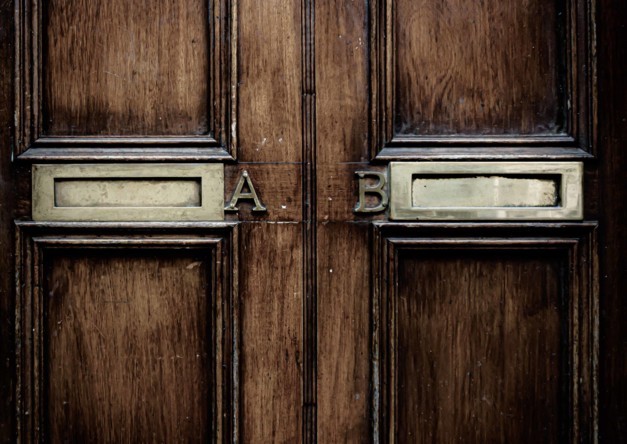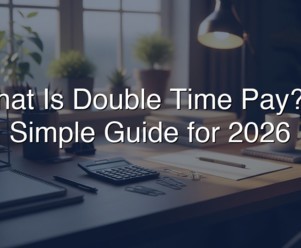The Comparison Between Conventional Loan vs FHA Loan
By Davis Clarkson , September 14 2021

Before we dive deep into this article, here’s a quick summary of the essential differences between conventional loan vs FHA loan:
| Conventional Loans | FHA Loans |
| They require a high credit score from borrowers. | They require a lower credit score from borrowers. |
| Federally insured. | Not federally insured. |
| Smaller down payments. | Down payments are slightly higher. |
| The property standards are more liberal. | The property standards are strict. |
| Can be used to buy a primary home, secondary home, or investment property. | Can only be used to buy a primary home. |
| Private mortgage insurance is a must when your down payment is less than 20%. | FHA mortgage insurance is a must regardless of the down payment amount. |
| Private mortgage insurance may be canceled. | FHA mortgage insurance can only be canceled if you refinance into a conventional loan. |
So, you’re ready to buy a home. What an exciting time! Buying a home is an exciting process, but it can also be stressful because it takes so many steps. You have to figure out your finances, hire a good real estate agent, find the right home for you, and more. Securing a loan is one of the very first steps. When it comes to loans for buying a home, there are two main options to consider: Federal Housing Administration (FHA) loans and conventional loans. Conventional loan vs FHA is a common debate.
Both options offer advantages and disadvantages you have to consider to make the best decision. Today, we will provide all the information you need on both types of loans and we will discuss the requirements and the differences between the two. Deciding what kind of loan to get is a big decision, so the more information you have the better. We will help you by breaking down what’s a first-home buyer conventional loan and what’s an FHA loan so you can have the clearest possible picture. Without further ado, let’s begin.
What Is An FHA Loan?
FHA loans are backed by the government and insured by the FHA. They are provided by lenders that are approved by the FHA, including credit unions, banks, and lending companies of other kinds. In the conventional loan vs FHA loan discussion, FHA loans are the right options for people who have low credit scores or limited savings. If you want to improve your credit score, this list of methods can help get you started.
With an FHA loan, borrowers are able to purchase or refinance primary homes, condos, and certain mobile and manufactured homes as well. There are certain categories of FHA loans that can finance renovations or new constructions. Being a federally insured loan means that lenders are protected if borrowers default on their mortgage. That means that they provide more favorable terms to borrowers who are not able to qualify for a conventional loan.
In other words, FHA loans make it more accessible for people to buy a home. You can apply for one of these loans with a credit score as low as 580 as long as you have enough to cover the 3.5% down payment, which is a requirement. Even if your credit score is lower than that, you may still qualify for an FHA loan. However, people in that position have to put down a minimum of 10% of the home’s purchase price. As a golden rule, most FHA lenders require mortgage applicants to have a credit score of 580 or over. FHA vs conventional loan interest rates is another common comparison. When it comes right down to it, FHA rates will be higher because borrowers have lower credit scores. So, in the FHA vs conventional loan interest rates debate, conventional loans are the winner.
What Is A Conventional Loan?
A conventional loan is a kind of mortgage loan that isn’t government-backed. This kind of loan is provided and serviced by private lenders such as credit unions, banks, and other kinds of financial institutions. Since they are not insured by the government, conventional loans pose the most risk for lenders. That means that the conventional loan requirements are a bit more strict and they are given to people with strong financial profiles. A first-time home buyer conventional loan is the right option for people with a strong credit score of 620 or over, which is what most lenders require. Down payments for conventional loans are often between 3 to 20 percent, it depends on the mortgage product.
Conventional loan requirements include having a stellar credit report and a credit score of at least 680. This kind of loan is divided into two categories, conforming conventional loans and non-conforming conventional loans. The maximum amounts for conforming conventional loans are set by the government, while non-conforming loans are not as standardized, meaning that pricing, eligibility, and features will vary greatly depending on the lender.
How To Compare: Conventional Loan Vs FHA Loan
When you’re comparing a conventional loan vs FHA loan you need to look at each element individually and compare them to understand the differences. That’s exactly what we’re going to do in this section!
Minimum Down Payment
-
FHA loans: The minimum down payment is 3.5% for borrowers with a credit score of 580 or over.
-
Conventional loans: For some conventional loans, the minimum down payment is 3% for borrowers who have a credit score in the high 600s and a strong savings account.
Credit Score
-
FHA loans: Because these loans are easier to qualify for, with a minimum credit score of 580 with a 3.5% down payment. If your credit score is lower than that, from 500 to 579, you may still be able to qualify, but the down payment would be 10%.
-
Conventional loans: To qualify for these loans, the minimum credit score is 620.
It’s important to note that for both loans, the credit score really depends on the lender. Some lenders will require a higher credit score than the standard and in both cases, they will offer better interest rates the higher your credit score is.
Debt-To-Income Ratio
Your DTI refers to the percentage of the monthly pre-tax income that you dedicate to paying your debts, which includes mortgages, child support, student loans, car loans, and credit card payments.
The higher your debt-to-income ratio, the more likely you are to have a hard time paying all your bills.
-
FHA loans: Your DTI must be 50% or less to qualify.
-
Conventional loans: Your DTI needs to be 43% or less, though some lenders will allow DIT of 50%.
Mortgage Insurance
Mortgage insurance exists to protect lenders in case borrowers default on the loan.
-
FHA loans: Mortgage insurance is required no matter how much your down payment is.
-
Conventional loans: Mortgage insurance is required for borrowers whose down payment is less than 20%.
Loan Limits
One of the things Federal Housing Administration loans and conventional loans have in common is that they both have loan limits. There’s only so much you can borrow and the maximum loan size will depend on the county you live in. You also have to keep in mind that loan limits may be changed by regulators every year. In 20201, the FHA loan limit stands at $356,362 in low-cost areas and $822,375 in expensive areas. The conventional loan limit is subject to conforming to the FHA loan limit. In 2021, the conventional loan limit stands at $548,250 for most of the country. Mortgage loans that exceed the limit are known as jumbo loans.
Condition of the Property
When you compare conventional loan vs FHA loan, the condition of the property and the intended use are important factors to consider. FHA appraisals are a lot stricter than conventional appraisals. Why? Because they don’t only assess the value of the property, but also the safety, adherence to local codes, and the integrity of the construction. FHA loans are meant for a primary home where you’ll be living at, so homes that are going to be flipped or investment properties don’t qualify for this kind of loan. On the other hand, conventional loans can be used to purchase a primary home, an investment property, or even a second home.
Refinancing
When it comes to mortgage refinancing, FHA streamline refinancing takes the gold. There’s no credit check, no home appraisal, and no income verification involved, which means that refinancing an FHA loan is as easy as it gets. However, the requirements are very strict. Refinancing your FHA loan will allow you to eliminate monthly mortgage insurance payments. Now, you are not able to cancel FHA mortgage insurance if your down payment was less than 10%. To eliminate the monthly FHA insurance premiums after you accumulate 20% equity, you need to refinance into a conventional mortgage.
How To Choose The Right Kind Of Loan
When you have to choose between an FHA loan and a conventional loan, there are a few factors you need to consider.
FICO Score and Credit History
FHA loans are the best option for people who don’t have the best credit history or credit score. People who have a really low credit score may not have any other options than an FHA loan. Of course, if that’s the case for you, you can always put off your plan of buying a home and work on your credit score for some time so you can have more options.
Down Payment
You have to make sure you can afford the down payment for the mortgage loan. If you don’t have much savings, an FHA loan is the most appropriate option for you. As we discussed before, a down payment for an FHA loan is 3.5%, while conventional loans require a higher down payment, from 5 to 20 percent.
How Long You’ll Own the Home
When you’re choosing between loans, you need to consider how much time you plan on owning the home you’ll be purchasing. Monthly mortgage insurance premiums on FHA loans will stay put for 11 years, while there are no upfront premiums related to conventional loans. This allows you to ask the lender to cancel the monthly premium once the loan-to-value ratio reaches 80%. Let’s say that you want to put down less than 20% and will only stay in the home for a short time. In that case, the monthly mortgage insurance premiums on the FHA loan won’t matter very much.
However, if you plan on being in the home for at least 11 years, you will have to pay the monthly premium for the entirety of your stay, even if the loan-to-value ratio gets better. If your financial situation allows it, you may be able to refinance into a conventional mortgage so you don’t have to deal with mortgage insurance premiums.
Annual Percentage Rate and General Cost
To determine what’s the best loan for you, you have to take into account upfront closing costs, required mortgage insurance, and any other fees that are attached to the mortgage. All this can turn a low-interest mortgage into an option that’s not really worth your while. The Annual Percentage Rate (APR) refers to the annual cost of procuring the loan and it includes the interest rate you were quoted with and any other fees that you’ll have to pay for the entirety of the loan’s life.
By comparing APRs, you will be able to visualize the overall cost of the loan and that can help you make a decision. Overall, FHA loans can be more expensive once you take into account monthly mortgage insurance premiums, even if the interest rate is lower than that of conventional loans.
Final Words
At the end of the day, whether you choose a conventional or FHA loan will depend on your financial situation. FHA loans are the better option for people who struggle with their credit score, need gift funds to cover the down payment, or have a higher DTI. If your financial ground is more stable, conventional loans can be the right option for you. Assess your financial situation and use this guide to compare both options to make the right decision. In the meantime, get your payslips printed and documented for future reference with the check stub maker!
Similar Articles
We’ve helped numerous individuals and businesses create professional documents! Create yours today!










